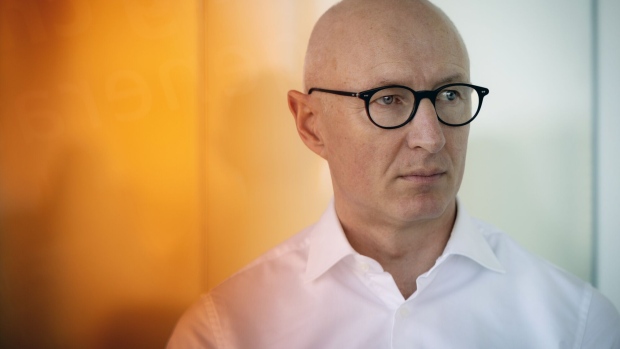Feb 7, 2024
Ozempic Maker Novo Gets Calls From ‘Scared’ Food CEOs for Advice
, Bloomberg News

(Bloomberg) -- Makers of everything from snack food to knee implants are facing a potential threat from Novo Nordisk A/S’s powerful appetite-suppressing treatments. So they’re calling the drugmaker for advice.
“A couple of CEOs from, say, food companies have been calling me,” Novo Chief Executive Officer Lars Fruergaard Jorgensen said during a wide-ranging discussion in New York. He declined to name names, saying questions had centered on how the drugs work and how fast they would roll out. “They are scared about it.”
The impact of the drugs, including Ozempic and Wegovy, could vary across industries, Jorgensen said. He pointed to the success of clinical trials of Wegovy on weight-linked ailments like kidney disease and knee arthritis, as well as recent Wall Street research showing a small change in consumer behavior can have major financial implications.
The new class of drugs known as GLP-1s, prescribed for diabetes as well as obesity, cause weight loss at levels previously achievable only with surgery. With a new competitor from Eli Lilly & Co., Zepbound, on the market since December, Bloomberg Intelligence estimates the weight-loss market alone could reach $80 billion by 2030.
That’s left companies from Walmart Inc. to Chipotle Mexican Grill Inc. grappling with how a less hungry, potentially healthier customer will affect business. Some, like Chipotle, have said fresh food will still appeal to people who are trying to lose weight.
French company Danone, which makes popular yogurt brands, also sees GLP-1 drugs boosting business. People taking drugs like Ozempic and Wegovy are “looking for products with high protein and low fat content,” Danone’s Chief Financial Officer Juergen Esser said on a call last year.
Read More: Ozempic Is Making People Buy Less Food in US, Walmart Says
“I say you can never close your eyes on any development that is happening,” Unilever Chief Executive Officer Hein Schumacher told Bloomberg Television on Thursday, adding that he himself had not called Jorgensen.
Nestle, the Swiss maker of Kit Kat chocolate, said in October it was working on products designed to complement the new class of weight-loss drugs and help limit the loss of lean muscle mass.
Others are watching and waiting. Conagra Brands Inc. CEO Sean Connolly told analysts last year the snackmaker has “an entire department of demand scientists” studying changes in consumer behavior every day.
“There’s still so many unknowns regarding the rate of adoption, the impact on food choices,” Hershey Co. CEO Michele Buck said on a call last year. “We’re doing more work constantly to understand those future potential impacts on our categories.”
Supply Struggles
Thus far, the impact of Wegovy and Ozempic has been moderated by Novo’s struggles to meet demand.
Jorgensen pointed to Novo’s $11 billion acquisition of three Catalent Inc. factories as key to boosting production.
He said Novo will put its own quality control processes in place at the factories. Catalent has faced production issues with some of its orders, including Moderna Inc.’s Covid vaccine and a widely used eye drug from Regeneron Pharmaceuticals Inc. Getting a site up to speed can slow productivity in the short term, Jorgensen said.
In the long term, Novo will be able to use Catalent’s capacity more efficiently and boost supply, Jorgensen said. He predicted that Novo will be able to make obesity drugs available not just “for the rich, but actually for the many.”
“Demand is much bigger than what we can supply today,” he said.
He predicted that Lilly’s entry into the market will benefit Novo, too. “If there’s one more company going out and convincing employers to opt in for obesity coverage, that’s actually a bigger benefit than a competitive threat.”
--With assistance from Alix Steel.
(Updates with comments from food company ceos starting from seventh paragraph.)
©2024 Bloomberg L.P.


